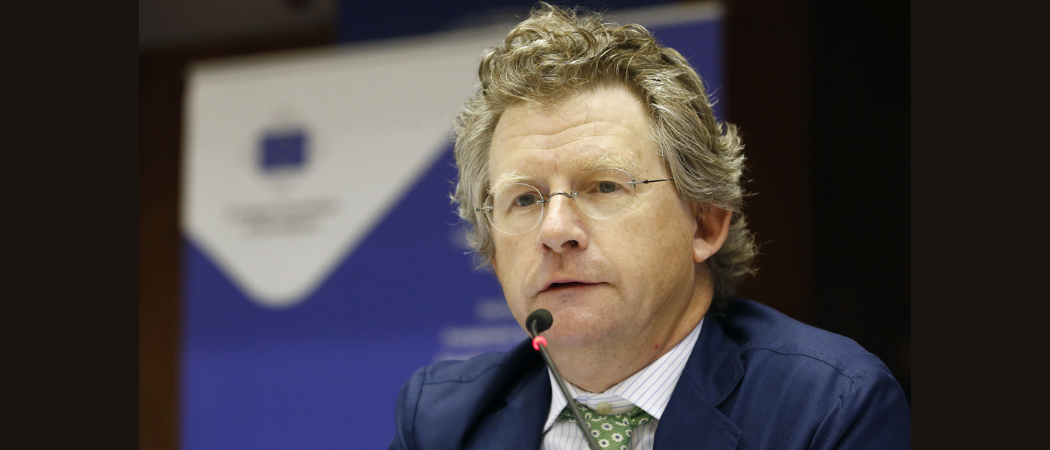The former member of EU Committee of the Regions also brings wide experience in innovation and start-ups - and the hope he can steer the EIC out of troubled waters

Michiel Scheffer is the new president of the European Innovation Council board. Photo: European Committee of the Regions / Flickr
The European Commission has appointed Michiel Scheffer as president of the European Innovation Council (EIC) board, as the EU scale-up fund continues to experience delays in getting its funding instruments fully operational.
He will replace Mark Ferguson, who has been acting as interim chair of the board since November 2021, while the EIC worked on reducing the backlog of start-ups waiting for grants and equity funding to reach their bank accounts.
Scheffer brings political experience to the EIC, having been a member of the EU’s Committee of the Regions.
He also has an extensive track record in business and academia, is familiar with the world of start-ups and has worked with many universities, as the founder and CEO of Polisema BV, a company providing advice and investment services for start-ups, in fields ranging from ICT and textiles to medical devices and energy storage. Scheffer was also CEO of Noéton Policy in Innovation BV, which provides consulting services in innovation management and public affairs.
German MEP Christian Ehler, who is a fierce critic of the delays plaguing the EIC funding programmes welcomed the appointment, saying he expects Scheffer to help EIC out of “troubled waters”.
The EIC was set up to identify, promote and scale up breakthrough technologies and disruptive innovations, an area where the EU has been failing to make significant progress. Despite a good R&D performance, the EU has always been struggling to translate research excellence into scalable products and services.
The EIC was formed to bridge that gap and was modelled after the European Research Council (ERC), the EU’s most prominent success in research and innovation policy of the past few decades.
However, the EIC has been experiencing significant disruption and delays in implementation, especially over its Accelerator programme, which failed to release money to companies awarded grant and equity funding. The delay was due to an internal row in the Commission about how to manage the risk attached to making equity investments in start-up companies.
Companies that applied in the first half of 2021 received an official letter from the Commission in 2022 saying it could not give a firm date for the signature of grant contracts.
Full commitment
Ehler was disappointed with the delays and went as far as threatening to withhold €811 million in financing from the Accelerator programme in 2022, unless the Commission sorted out the management issue plaguing the equity fund.
Ehler praised the work done by Ferguson as interim chair of the board to get EIC running smoothly, but said what it needs is a “full-time rather than an interim” president. “I look forward to working with Mr Scheffer to get the EIC fully back on track and to develop a solid long-term plan for the EIC,” Ehler said.
Robert-Jan Smits, president of TU Eindhoven and former head of the Commission’s research and innovation directorate general welcomed the appointment of his fellow Dutchman. Scheffer’s main task, Smits says, “Will be to restore trust in the EIC, notably at the European Parliament, where in particular Christian Ehler has criticised the implementation of the programme.”
The EIC’s equity fund is to become fully independent from in-house Commission management in September, when it will be put in the hands of the European Investment Bank (EIB). AlterDomus, a Luxembourg-based management company will take the final decisions on which companies get equity investments. A permanent deal is still being negotiated by the Commission and the EIB.
In Smits’ view, Scheffer’s appointment “will also be a big support to EIC director Jean-David Malo who has done and still is doing a great job to implement the programme in the most effective and efficient way under difficult conditions.”
The official title of Scheffer’s new position is EIC board president, not chair, in a nod to the nomenclature used in the very successful ERC. “The title of president is certainly meant to put the EIC at par with the ERC and as such to make it clear that the Commission attaches equal importance to this novel instrument,” said Smits.
“Michiel possesses both the managerial and political skills that are more than ever necessary for this job,” said Smits.





 A unique international forum for public research organisations and companies to connect their external engagement with strategic interests around their R&D system.
A unique international forum for public research organisations and companies to connect their external engagement with strategic interests around their R&D system.